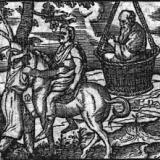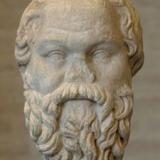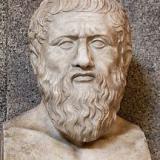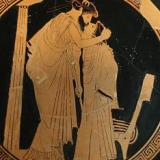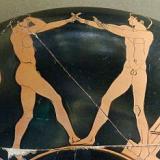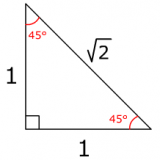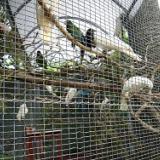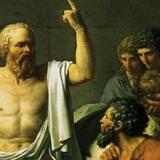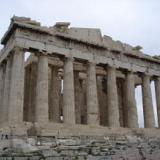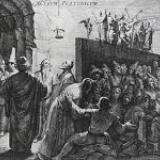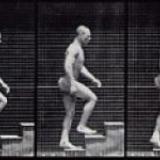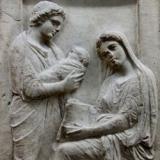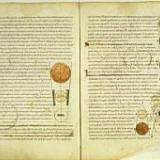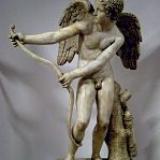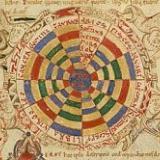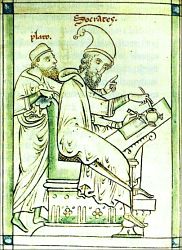Socrates and Plato
Beginning with episode 15, Peter looks at Socrates and how he paved the way for Plato -- with whom philosophy might be said to come of age. Episodes on Plato investigate the literary and philosophical features of such famous dialogues as the Meno, Phaedo, Republic, Parmenides, and Timaeus, as well as lesser known works like the Euthydemus, the Charmides and the Cratylus. Look for interviews with Raphael Woolf, Fiona Leigh, Frisbee Sheffield and MM McCabe.
The book version of these podcasts is available from Oxford University Press.
• Plato, Complete Works, ed. J.M.Cooper and D.S. Hutchinson (Hackett: 1997).
• S. Ahbel-Rappe and R. Kamketar (eds.), A Companion to Socrates (Oxford: 2006).
• T.C. Brickhouse, and N.D. Smith, Plato’s Socrates (Oxford: 1994).
• G. Vlastos, Socrates: Ironist and Moral Philosopher (Cambridge: 1991).
• H. Benson (ed.), A Companion to Plato (Oxford: 2006).
• G. Fine (ed.), Plato 1: Metaphysics and Epistemology, and Plato 2: Ethics, Politics, Religion, and the Soul (Oxford: 1999).
• R. Kraut (ed.), The Cambridge Companion to Plato (Cambridge: 1992).
Posted on
In the first of several episodes on Socrates, Peter discusses his portrayals in "The Clouds" of Aristophanes and in the works of the historian Xenophon.
Posted on
In this episode, the second of three devoted to Socrates, Peter Adamson of King’s College London discusses the way he is portrayed in the early dialogues of Plato, especially the “Apology.” Topics include Socratic ignorance and Socrates' claim that no one does wrong willingly.
Posted on
Peter's colleague Raphael Woolf joins him to discuss Socrates as he is portrayed by Plato: the gadfly of Athens. But was he an ascetic? And could it really be true that virtue is knowledge?
Posted on
In this episode, Peter Adamson of King’s College London discusses the life story and writings of Plato, focusing on the question of why he wrote dialogues.
Posted on
Peter discusses virtue, self knowledge and some bad arguments in two lesser-known dialogues of Plato: the Charmides and the Euthydemus.
Posted on
Peter discusses one of Plato’s great dialogues on ethics, the Gorgias, in which Socrates compares rhetoric to pastry-making and squares off against the immoralist Callicles.
Posted on
Peter tackles one of Plato's most frequently read dialogues, the "Meno," and the theory that what seems to be learning is in fact recollection.
Posted on
Peter examines Plato’s "Theaetetus", discussing the relativist doctrine of Protagoras, the flux doctrine of Heraclitus, and the two famous images of the wax tablet and aviary.
Posted on
What is Plato's understanding of knowledge, and how does he think that knowledge relates to virtue? Peter tackles these questions with his King's colleague MM McCabe in this interview.
Posted on
In the Phaedo, Plato depicts the death of Socrates, and argues for two of his most distinctive doctrines: the immortality of the soul and the theory of Forms.
Posted on
In his masterpiece the Republic, Plato describes the ideal city and draws a parallel between this city and the just soul, with the three classes of the city mirroring the three parts of the soul. Peter discusses this parallel and the historical context that may have influenced Plato's political thought.
Posted on
The most famous work of Plato is the "Republic" and its most famous passage is the allegory of the cave. In this episode Peter looks at the allegory, along with the Form of the Good and divided line.
Posted on
Plato sets out criticisms against his own theory of Forms in the "Parmenides". In this episode Peter looks at the criticisms, including the Third Man Argument, and asks what Plato wants us to conclude from them.
Posted on
Peter talks to Fiona Leigh of University College London about Plato's Sophist, which revises the theory of Forms to explain how falsehood is possible.
Posted on
Peter discusses Plato's contribution to the philosophy of language, the Cratylus, a dialogue which uncovers a theory of Heraclitean flux hidden within ancient Greek.
Posted on
Peter looks at Plato's Timaeus, focusing on the divine craftsman or demiurge, the receptacle, and the geometrical atomism of Plato's elemental theory.
Posted on
In this episode, Peter discusses Plato’s erotic dialogues, the Lysis, the Phaedrus and the Symposium, and talks about the relationship between love, friendship and philosophy in Plato’s thought.
Posted on
Frisbee Sheffield, an expert on Plato's Symposium and Phaedrus, chats to Peter about love and friendship in the erotic dialogues.
Posted on
Plato criticized both the epic poetry of Homer and Hesiod, and the tragic and comic poets. Yet he invented myths of his own. So what was his attitude towards literature and myth? Peter tackles this question in a final episode on Plato.




